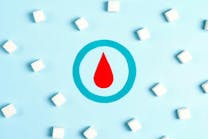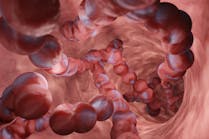Roche Diagnostics develops healthcare solutions with a focus on personalized healthcare
Professional
As head of Roche Diagnostics in North America, my goal is to develop a culture that fosters excellence in science, innovation and wellness, along with a passion to improve the lives of patients. I serve as Board Chairman of the Central Indiana Corporate Partnership and am a member of the Executive Committee for AdvaMedDx.
Education
BS in Marketing from Northern Kentucky University
Personal
In addition to enjoying spending time with my wife and children, I am an avid cyclist and endurance athlete.
What are Roche Diagnostics’ primary areas of expertise? At a high level, Roche’s expertise is in developing healthcare solutions in pharmaceuticals and diagnostics, with a focus on personalized healthcare. On a practical level, the patient is at the center of everything we do, so in our diagnostics business our aim is to help laboratories empower healthcare professionals to make the right decisions for their patients at the right time. In parallel with that, we also enable patients to have better control over their own health and well-being.
What are the major categories of solutions that Roche provides for the clinical lab? We offer a variety of test platforms and assays for research and IVD use in the areas of chemistry and immunochemistry, tissue diagnostics, molecular diagnostics, hematology, and point-of-care testing. We’ve also been developing solutions in the area of digital diagnostics, most recently introducing a tumor board software solution that acts as a comprehensive dashboard for oncology care teams. We also have several solutions for target enrichment and library prep in next-generation sequencing (NGS) research and are developing an end-to-end sequencing workflow solution for clinical applications.
What are some of the major trends in clinical diagnostics that affect Roche’s customers? How is the company responding to these? Some of the trends we see affecting our customers the most are the shift from fee- to value-based healthcare, declining reimbursement, the growth of service line structures in IHNs, the centralization of routine testing in parallel to the growth of point-of-care testing, and the increasing importance of data-driven healthcare. These are not new, of course, and we have been working with labs and healthcare institutions to develop solutions for several years. Some of them are technology-focused, such as automation solutions that allow the integration of routine chemistry and molecular testing in the core lab, and the development of lab-quality PCR testing for the point of care. Other solutions we have developed are at a higher level, such as lab workflow consulting, cross-portfolio solutions that address clinical focus areas like antibiotic stewardship and women’s health, and the tumor board software solution that I referred to earlier.
How are changes in reimbursement for and regulation of U.S. labs affecting Roche’s business and its plans for the future? Do you anticipate further changes? The conversation about lab regulation is still very fluid, but in general we fully support the efforts to modernize the regulatory framework for clinical diagnostic tests. We believe the reforms being discussed are important to ensure that patients and providers have access to innovative and clinically validated tests. We don’t expect regulation of LDTs to have an impact on our diagnostics business.
On the other hand, the implementation of PAMA and declining reimbursement levels are having a significant impact on laboratories. But we are finding that partnering with labs and IHNs to look at broader cost management solutions, such as platform and menu consolidation, integrated core lab automation, workflow consulting, and health information management, is enabling them to address the increasing cost pressures effectively and even enhance their patient care in the process.
Companion diagnostics is a growing discipline. How does Roche use its expertise to lead in this area? Companion diagnostics and targeted therapies are a core component of personalized healthcare, and having both pharmaceutical and diagnostic expertise under one roof has certainly helped advance this discipline at Roche. In fact, two-thirds of our pharmaceutical research and development projects are being developed with companion diagnostics. But we also partner with many other pharma companies to develop companion and complementary diagnostic tests for their drugs, especially in the oncology space.
Beyond the actual science of the diagnostic test, we’ve found that one of the key ways we can lead in this area is to help pharmaceutical companies understand the difference between the development and implementation process for a diagnostic test as opposed to a drug and why partnering early in the development process is critical. For example, completing testing-access readiness and getting a test up and running can take a lab four to nine months. And there may be extensive pathologist training required as well. If you calculate in these and other factors, you should really be starting discussions with a companion diagnostic company 18 months to two years before the anticipated launch of a drug.
Can microbiology and molecular be friends? How can they be used together to enhance patient management? I think the tension is understandable, as molecular tests are increasingly replacing traditional microbiology tests in a growing number of applications because of their faster turnaround time and ease of use. We see that trend continuing in some areas, but we are also looking into new microbiology technologies that can complement PCR-based tests to help clinicians provide optimal patient care. We have one technology in development, for example, that has very exciting potential, not only in traditional infectious disease detection applications but also in assessing antibiotic susceptibility.
Roche has made several acquisitions in the area of digital diagnostics in the past year. How do you see this area affecting clinical laboratories in the future? Information technology has transformed many industries, and it’s now changing healthcare. To transition from a fee-based to a value-based system, healthcare organizations must adopt a data-driven mindset. We believe diagnostic data is an untapped resource that will allow the lab to play a leading role in this data-driven world.
We’re taking a leadership role in digital diagnostics because the right kind of data delivered in the right way can help healthcare institutions address significant issues like reducing length of stay, streamlining protocols, and eliminating waste. It can radically change the way healthcare is delivered now and in the future. Our recently announced partnership with GE Healthcare, for example, has the goal of developing an industry-first digital platform that will allow the seamless integration and analysis of in-vivo and in-vitro data, patient records, medical best practice, real time monitoring, and the latest research outcomes. Clinicians will then have the comprehensive decision support for providing the right treatment and quality of care for their patients.
We always look forward to your news conference at AACC. Can you give us a preview—without revealing anything prematurely, of course? Well, I could tell you, but I might have some explaining to do to my regulatory compliance director. Seriously, we have several exciting things to share, including progress on our end-to-end next generation sequencing workflow solution and the microbiology technology I mentioned. But I think the most significant news this year will be about our focus on digital diagnostics, the new solutions we are developing in that space, and how we see that area transforming the value the clinical laboratory can bring to the healthcare industry.





